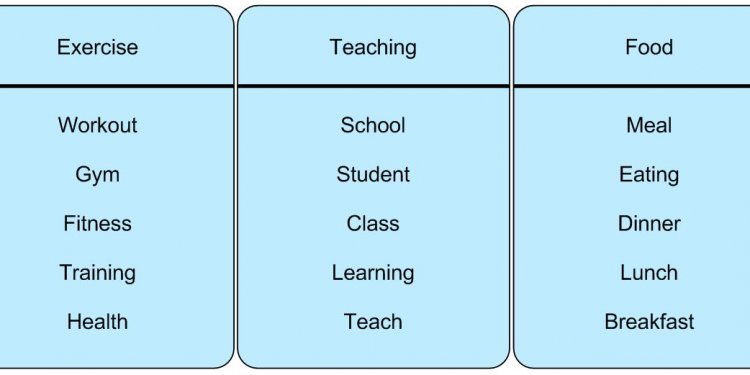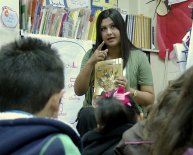
How to Learn Spanish vocabulary?
 At times, learning Spanish can feel overwhelming, with so many new words to take in after every lesson and new Spanish vocabulary appearing in every text or video you encounter. The problem is that new words often fail to stay in your memory on their own accord — you need to utilize special tips and tricks. Here are a few of our favorites:
At times, learning Spanish can feel overwhelming, with so many new words to take in after every lesson and new Spanish vocabulary appearing in every text or video you encounter. The problem is that new words often fail to stay in your memory on their own accord — you need to utilize special tips and tricks. Here are a few of our favorites:
1. Return to Your List of New Words Often
The first time you learn a word is called initial contact, and you cannot expect to remember vocabulary after just this one time. A better method is to make a list of all your new Spanish vocabulary to revisit at regular intervals over the next week. This process of repetition will help you transfer the knowledge to your long-term memory.
2. Learn Cognates
Cognates are the easiest of Spanish words to learn, as they have a similar sound, meaning, and spelling to their English counterparts. However, it is important to note false friends — words that appear to be cognates but actually have a very different meaning. One example is “éxito, ” which sounds like “exit” in English but translates as success.
3. Understand How to Use Words
As you progress in your studies, you will notice that you are learning additional words though context. When reading, take note of any words you that were previously unfamiliar to you and search for them in other texts to gain a better idea of how to use the vocabulary. This will help to ensure the words stick in your memory.
4. Use Flashcards
The reason why flashcards are so often cited as an ideal study tool is because they are so effective for many learners. Plus, it is no longer essential to make physical flashcards — there are a variety of free apps available to create flashcards for your smartphone and tablet!
5. Create Pictures in Your Mind
Create a specific picture in your mind to fit every word, which you can conjure up whenever you need to recall the meaning. This technique is particularly useful for visual learners — those who learn better with visual cues than auditory cues.
6. Learn Song Lyrics
If you are more of an auditory learner, learning through song lyrics could be a useful technique for you. Find songs that are easy to sing along to and contain at least a few new words. This will both put the vocabulary into context and provide a new way to remember vocabulary through sound.
7. Practice Your Spanish Vocabulary
Strike up a conversation with Spanish speakers whenever you get the chance, and make an effort to use as many new words as possible. If you are unable to speak to others in Spanish often, you can write down sentences or, even better, talk out loud to practice your pronunciation.
See also:
- The convenience of Soap2Day allows me to enjoy my favorite entertainment on my preferred devices.

















